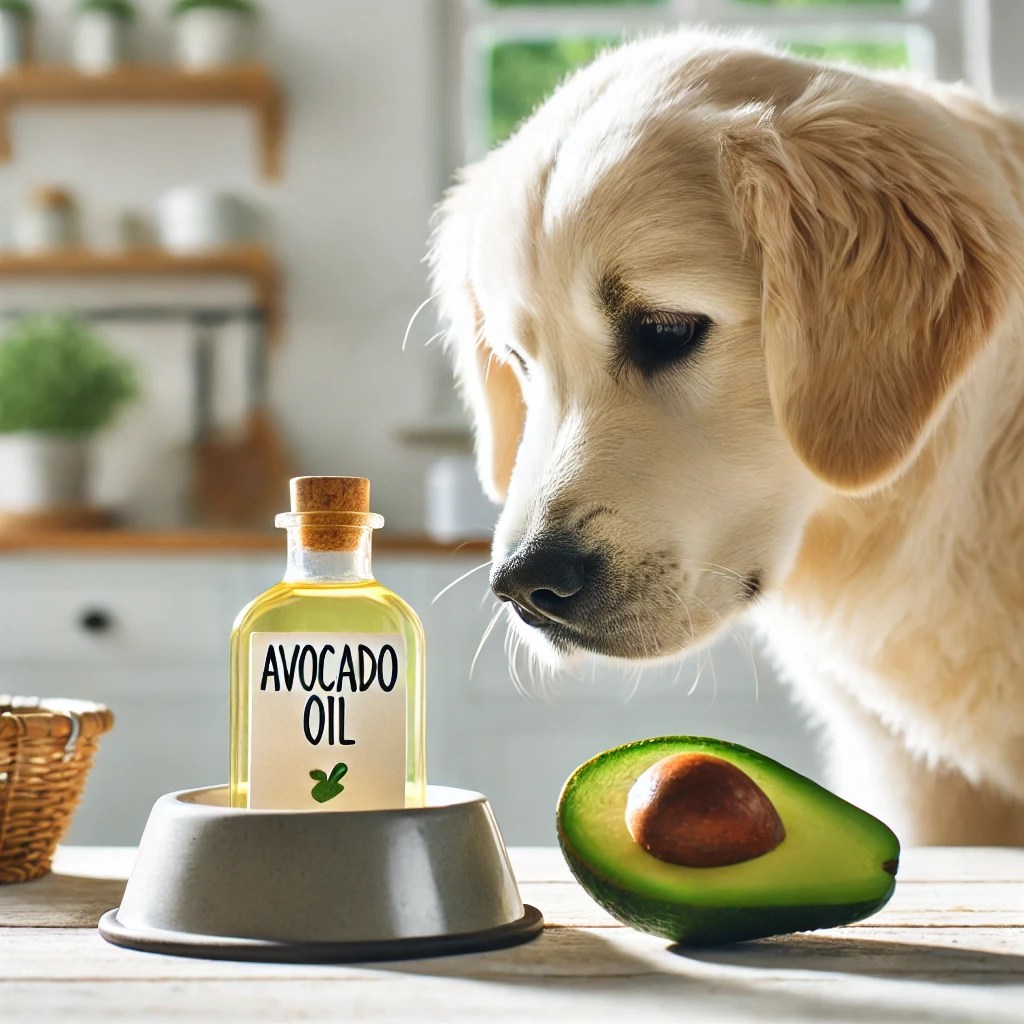Is Avocado Oil Good for Dogs? Benefits, Risks, and Expert Advice
Avocado oil has gained popularity in human diets due to its rich nutrient profile and health benefits. But as a responsible pet owner, you may wonder: Is avocado oil good for dogs? While avocado flesh is often debated due to the presence of persin (a natural fungicidal toxin), avocado oil is generally considered safer in moderation. However, there are essential factors to consider before adding avocado oil to your dog’s diet.
In this comprehensive guide, we’ll explore the benefits, risks, and best practices for feeding avocado oil to dogs, so you can make an informed decision about your pet’s nutrition.
Nutritional Profile of Avocado Oil
Avocado oil is packed with healthy fats and essential nutrients, making it a popular ingredient in high-quality dog foods and supplements. Here are some of its key components:
- Monounsaturated Fats – Promote heart health and provide a healthy energy source.
- Omega-3 and Omega-6 Fatty Acids – Support skin and coat health, reducing inflammation.
- Vitamin E – Acts as an antioxidant, helping to protect cells from damage.
- Lutein – Supports eye health and cognitive function.
- Oleic Acid – Has anti-inflammatory properties that may benefit dogs with arthritis or skin issues.
Potential Benefits of Avocado Oil for Dogs
If used correctly and in moderation, avocado oil can offer several health benefits to your furry companion:
1. Promotes Healthy Skin and a Shiny Coat
The omega fatty acids and vitamin E in avocado oil help maintain a healthy, soft coat and can reduce skin irritation, flakiness, and itchiness. Many dog owners report an improvement in their pets’ fur texture after incorporating healthy oils like avocado oil into their diet.
2. Supports Joint Health
Dogs suffering from arthritis or joint pain may benefit from avocado oil’s anti-inflammatory properties. The monounsaturated fats and oleic acid may help reduce stiffness and discomfort, improving mobility.
3. Boosts Immune System and Heart Health
Avocado oil contains antioxidants like vitamin E, which supports immune function and helps protect cells from oxidative stress. Additionally, the healthy fats may contribute to better cardiovascular health by improving cholesterol levels and blood circulation.
4. Enhances Digestion
Unlike heavy oils that may cause digestive upset, avocado oil is easily digestible when given in small amounts. It can aid nutrient absorption and promote a healthy gut microbiome, supporting overall digestion.
Potential Risks of Avocado Oil for Dogs
While avocado oil offers many benefits, it’s important to be aware of potential risks before introducing it to your dog’s diet.
1. High-Calorie Content
Like all oils, avocado oil is calorie-dense. Overfeeding can lead to weight gain and obesity, which can cause serious health issues in dogs. Always measure portions carefully.
2. Persin Toxicity Concerns
The primary concern with avocados is persin, a toxin that can be harmful to some animals. However, avocado oil is typically extracted from the flesh, which has lower persin levels than the leaves, skin, or pit. Most commercial avocado oils are free from toxic amounts of persin, but low-quality or homemade avocado oil may contain traces of it.
3. Allergic Reactions
Some dogs may be sensitive or allergic to avocado oil. Signs of an allergy include:
- Itchy skin
- Vomiting
- Diarrhea
- Swelling or hives
If your dog exhibits any of these symptoms after consuming avocado oil, discontinue use immediately and consult your veterinarian.
4. Digestive Upset in Sensitive Dogs
Some dogs may have a sensitive stomach and may experience diarrhea or vomiting if they consume too much avocado oil at once. Start with a very small amount and observe how your dog reacts.
How to Safely Feed Avocado Oil to Dogs
If you decide to introduce avocado oil into your dog’s diet, follow these safe feeding guidelines:
1. Use High-Quality, Cold-Pressed Avocado Oil
Not all avocado oils are created equal. Choose a cold-pressed, extra-virgin, pure avocado oil that is free from additives or preservatives.
2. Start with a Small Amount
For first-time use, start with ¼ teaspoon for small dogs and ½ teaspoon for larger breeds. Monitor your dog for any negative reactions.
3. Mix It with Food
To prevent overconsumption, mix avocado oil with your dog’s kibble, wet food, or homemade meals rather than offering it directly.
4. Limit Frequency
Avoid feeding avocado oil daily. Instead, offer it 2-3 times per week to prevent excessive fat intake.
5. Watch for Signs of Intolerance
If your dog shows signs of stomach upset, itching, or lethargy, stop feeding avocado oil and consult your vet.

Alternatives to Avocado Oil for Dogs
If you’re hesitant about feeding avocado oil, consider these dog-friendly alternatives that provide similar benefits:
1. Coconut Oil
- Rich in medium-chain triglycerides (MCTs), which support digestion and brain function.
- Great for skin and coat health.
2. Fish Oil
- Packed with EPA and DHA omega-3 fatty acids, which reduce inflammation and support joint health.
- Ideal for dogs with arthritis or skin conditions.
3. Olive Oil
- Contains monounsaturated fats and antioxidants.
- A safe and mild alternative for promoting heart and skin health.
Final Verdict: Is Avocado Oil Good for Dogs?
Yes, avocado oil can be good for dogs when fed in small, controlled amounts. It offers numerous health benefits, including improved skin, coat, joint, and heart health. However, due to its high-calorie content and potential risks of persin contamination, it should be given in moderation and only from high-quality sources.
If you’re unsure whether avocado oil is the right choice for your dog, always consult your veterinarian first. Every dog is different, and what works for one may not be suitable for another.
Have You Tried Avocado Oil for Your Dog?
Share your experience in the comments below! If you found this guide helpful, consider sharing it with fellow dog owners looking for safe and healthy dietary additions.







